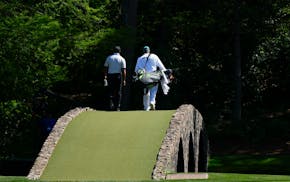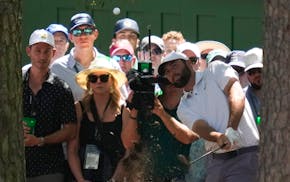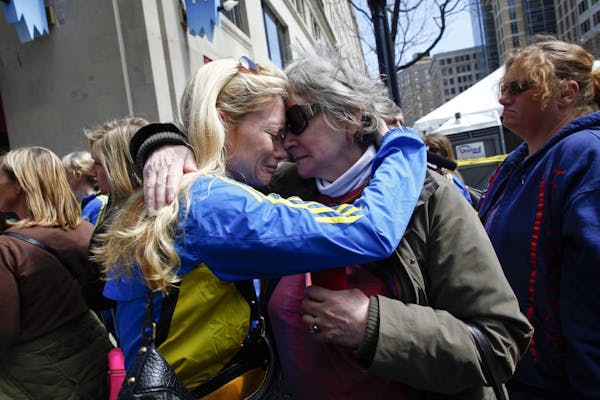It could happen here.
It could happen anywhere.
Any day, at any American ballpark, arena, stadium or finish line, a terrorist or random lunatic could kill us or our loved ones. That has always been true, which became clear as blood on cobblestones on Monday, when bombs killed and maimed people at the Boston Marathon on Patriots' Day in a great American city.
Shrapnel packed into pressure cookers brought sports into the modern world, a world that lives under the daily threat of terrorism.
The good people in Boston on Monday have already proved that those attending sports events will react the way the rest of the modern world has, whether after a bombing at a sidewalk cafe in Tel Aviv or a thwarted gas attack on the tube in London. People learn, as the Brits say, to keep calm and carry on.
There is no other option if you are an American. To live in an open society is to embrace risk. There is no security system that can guarantee safety. From Monday forward, every person at a sports event will have reason to proceed with a heightened sense of awareness, a suspicion of the discarded backpack or a long overcoat on a warm day.
There is a difference, though, between awareness and fear. The people in Boston proved that when they had the most to fear.
Whatever life-imitating entity was responsible for the bombings in Boston wanted to see people running. That wish was fulfilled.
When smoke cascaded over the bodies and the blood, people ran.
First responders sprinted toward the noise. Competitors near the finish line of the Boston Marathon pushed on, toward Massachusetts General Hospital, to give blood. One elderly man knocked off his feet by one blast righted himself and finished the race.
We can be frightened. We can't be terrorized.
The bombs in Boston reminded us that one of the dominant characteristics of evil is shrewdness.
Al-Qaida targeted the Twin Towers, symbols of capitalism.
The bombs in Boston targeted a democratic competition held on a day celebrating democracy.
There is a difference between shrewdness and understanding, though. The perpetrators in Boston will learn what Al-Qaida did, which is that an act of violence against Americans can kill and maim, but it can't alter our way of life.
Somewhere someone with limited sensibilities is saying that the bombing "puts sports into perspective," but that demonstrates only confusion over the place of sports in many of our lives.
A terroristic act doesn't put sports into perspective any more than it puts music or theater or television or a yearning for good coffee into perspective.
Sport is one of the things we do together. In a country of increasing diversity in tastes and religions, sport might be the most prevalent and popular thing we do together.
Check the television ratings. Where once the United States gathered, apart yet together, to watch Walter Cronkite or Ed Sullivan, now sporting events create our largest congregations. For better and worse, sport is our national religion.
The horror of April 15 in Boston will fade eventually, just as the horror over 9/11 did, and we will again be left with images of heroism.
After 9/11, we remembered the men and women who scaled smoky stairwells and dug through rubble.
After the bombings at the Boston Marathon, we will remember runners: those who ran to help.
Jim Souhan can been heard weekdays at noon and Sundays from 10-noon on 1500 ESPN. His Twitter name is @SouhanStrib. jsouhan@startribune.com.

Souhan: Why Tiger Woods should keep swinging
Souhan: Scheffler wins Masters again, shows what makes him special
Morikawa falters in final round at Masters

Keeping up with the Joneses who helped design Augusta National's classic back nine


